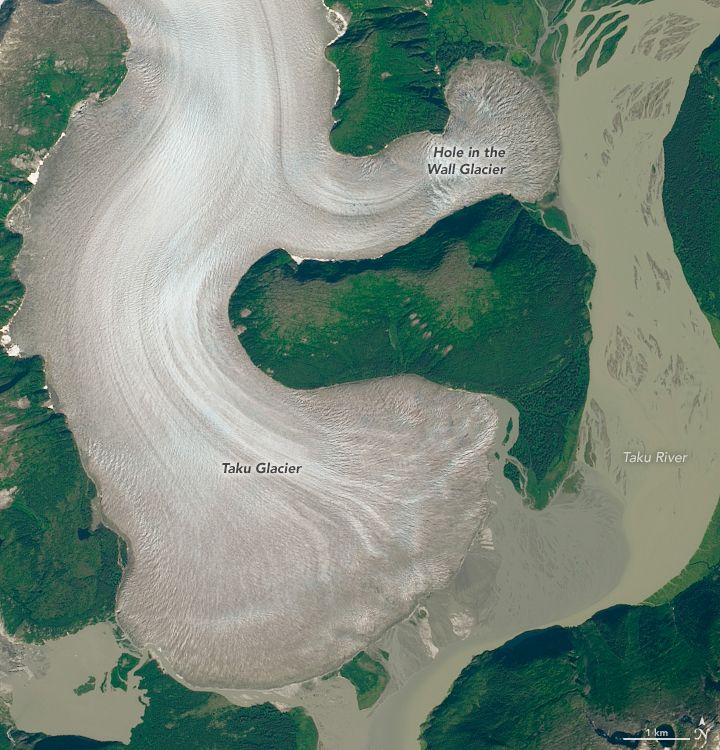The World's Thickest Mountain Glacier Is Finally Melting, and Climate Change Is 100% to Blame
By Brandon Specktor - Senior Writer 2 days ago

Taku Glacier in Alaska can be seen holding strong in this satellite image captured in August 2014.
(Image: © NASA Earth Observatory)
Massive and meaty, the Taku Glacier in Alaska's Juneau Icefield was a poster child for the frozen places holding their own against climate change. As the largest of 20 major glaciers in the region and one of the single thickest glaciers in the world (it measures 4,860 feet, or 1,480 meters, from surface to floor), Taku had been demonstrably gaining mass and spreading farther into the nearby Taku river for nearly half a century, while all of its neighboring glaciers shrank. Now, it appears those glory days are over.
In a new pair of satellite photos shared by NASA's Earth Observatory, the slow decline of Taku Glacier has finally become apparent. Taken in August 2014 and August 2018, the photos show the icy platforms where the glacier meets the river retreating for the first time since scientists began studying Taku, in 1946.
While the shrinkage is subtle for now, the results are nonetheless shocking. According to glaciologist Mauri Pelto, who has studied the Juneau Icefield for three decades, Taku was predicted to continue advancing for the rest of the century. Not only have these signs of retreat arrived about 80 years ahead of schedule, Pelto said, but they also snuff a symbolic flicker of hope in the race to understand climate change. Of 250 mountain (or "alpine"

glaciers that Pelto has studied around the world, Taku was the only one that hadn't clearly started to retreat.
"This is a big deal for me because I had this one glacier I could hold on to," Pelto, a professor at Nichols College in Massachusetts, told NASA. "But not anymore. This makes the score climate change: 250 and alpine glaciers: 0."
More:
https://www.livescience.com/taku-glacier-sudden-retreat.html
